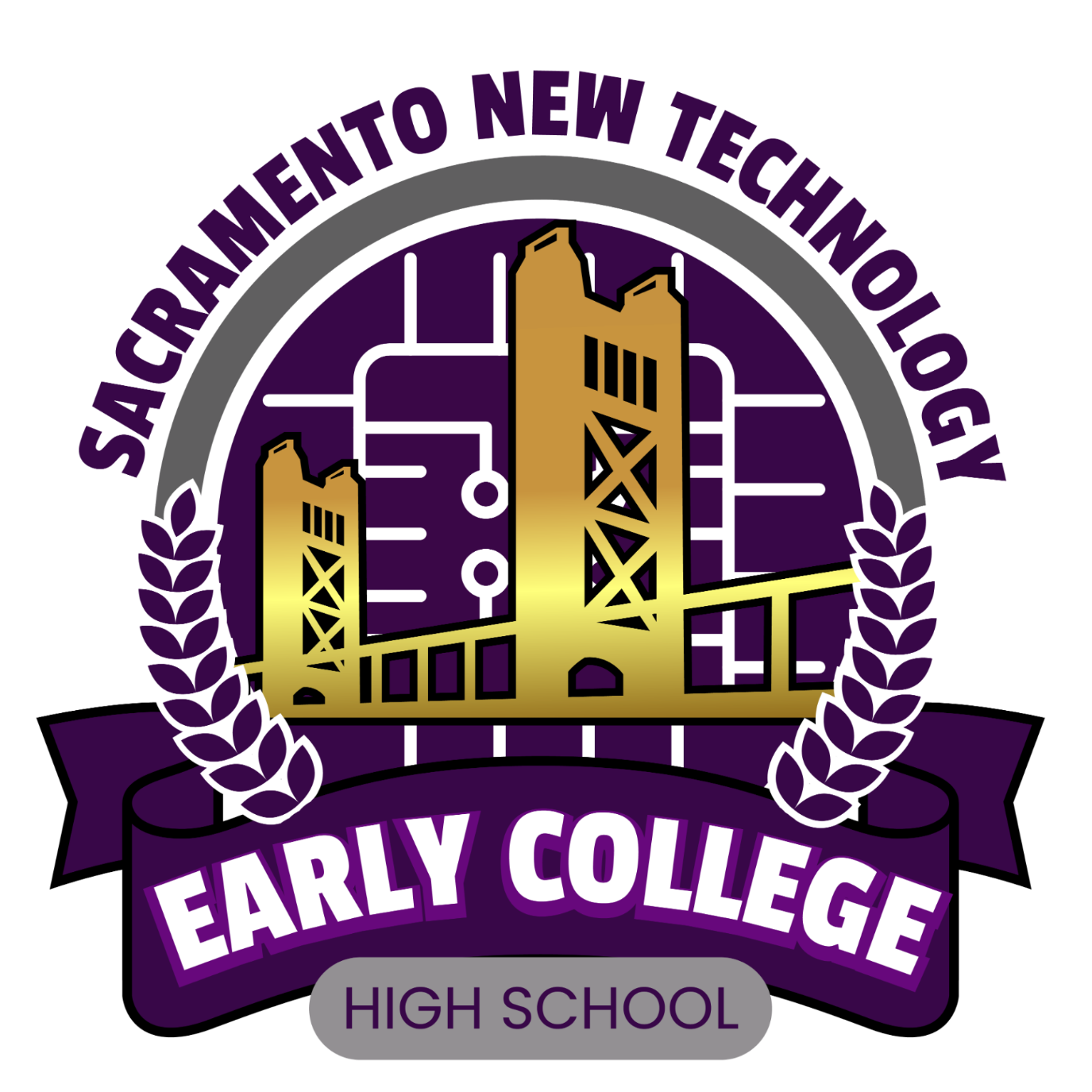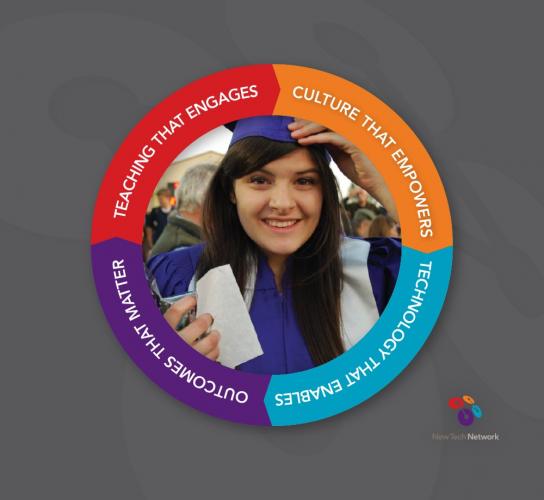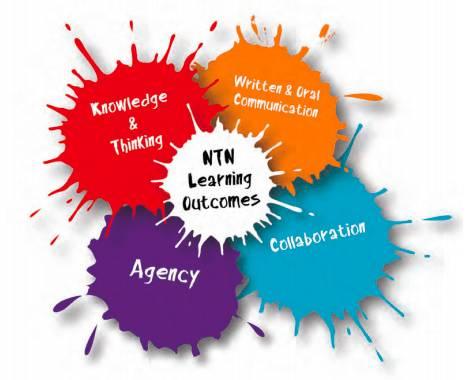Why New Tech?
The New Tech Way
Welcome to Sacramento New Technology Early College High School (SNTECHS), where we prepare students for success in college, the workforce, and beyond. Our Early College Program is a standout feature, offering students the unique opportunity to earn college credits while still in high school. This head start provides numerous benefits, including reduced college tuition costs, advanced academic standing, and a seamless transition to higher education.
At SNTECHS, we prioritize comprehensive student development. Our students demonstrate growth in the 5 Learning Outcomes, emphasizing our commitment to nurturing well-rounded individuals. We value learning above all else and expect students to work diligently to develop their whole selves.
Our students are expected to be principled and professional in their behavior and daily decision-making. They actively participate in activities designed to build and maintain a culture of Trust, Respect, Responsibility and Relationship.
As a proud member of the New Tech Network (NTN), Sacramento New Technology Early College High School is part of a community of over 350 schools dedicated to innovative education and proven student success. Join us at SNTECHS, where we empower students to take control of their education and build a bright future.
Our school uses the 4 Design Pillars to guide our teaching and Learning:
- Outcomes that Matter – a focus on Knowledge and Thinking, Collaboration, Written Communication, Oral Communication and Agency.
- Teaching that Engages – we use Project Based Learning (PBL) and primary method of teaching that allows students to best show proficiency in the learning outcomes. PBL requires contextual, creative, and shared learning. Students collaborate on meaningful projects that require critical thinking, creativity, and collaboration in order to answer challenging questions. By making learning relevant, students see a purpose for mastering state-required skills and concepts.
- Culture that Empowers – we promote a culture of Trust, Respect, and Responsibility. Students and teachers alike have ownership over the learning experience and their school environment.
- Technology that Enables – our learning management platform, Echo, supports project-based learning and features an innovative gradebook that aligns to the deeper learning skills students will need in college and career. Digital tools, cultivated and aligned content, and a community of shared learning are integrated to create a powerful platform to support student learning.
More about the Learning Outcomes:
- Knowledge and Thinking - Knowledge and Thinking skills are grounded in the ability to reason, problem-solve, develop sound arguments or decisions, and create new ideas by using appropriate sources and applying the knowledge and skills of a discipline. As students gain momentum in Knowledge and Thinking they are empowered to discover the truth in assertions, to think critically, and to become knowledgeable about the world around them.
- Collaboration - Collaboration asks students to consider both, how they individually contribute, and how a group works together. Collaboration helps students not only develop their academic and social skills but also help contribute to a learning community. Collaboration fosters a student’s ability to engage in a learning environment that is authentic, active, relational, responsive and complex.
- Written Communication - Written Communication is the ability to effectively communicate knowledge and thinking through writing. Students organize and structure ideas in writing while using discipline appropriate language and conventions. Building written communication skills empower students to effectively communicate their ideas, share their voice, and advocate for their learning.
- Oral Communication - Oral Communication is the ability to effectively communicate knowledge and thinking, and engage in clear, thoughtful dialogue through group conversations and presentations. Oral Communication is vital for a student’s social academic success. Furthermore, effective verbal communication empowers students to advocate for themselves, ask relevant questions, and communicate clearly.
- Agency - Agency is a combination of academic mindset and the ability to take ownership over one’s own learning. Through developing agency, students will be empowered to actively engage, advocate for themselves, and leverage the skills they need to thrive.


